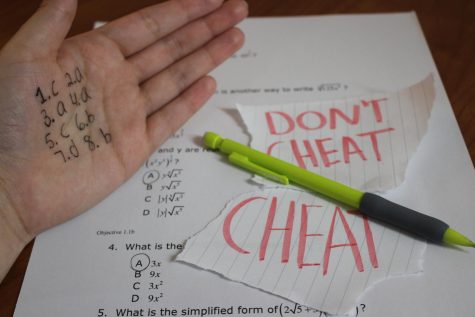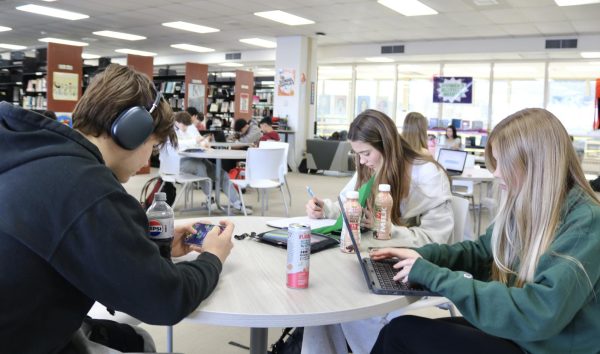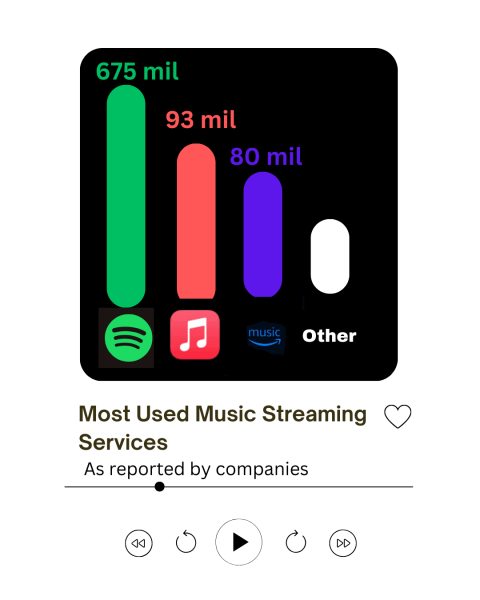Academic Dishonesty: is Cheating a Justifiable Wrong?
 Write flashcards, review and go over notes to pass your test. Or just simply sneak a glance at the paper of the smart kid sitting next to you. Both options lead to good grades, but one requires more work and struggle.
Write flashcards, review and go over notes to pass your test. Or just simply sneak a glance at the paper of the smart kid sitting next to you. Both options lead to good grades, but one requires more work and struggle.
Most would agree that cheating is wrong. However, many would argue that certain circumstances, such as stress, could justify the action.
It can be very challenging to put forth your best effort all day, everyday, five days a week. Managing classes and studying and completing assignments for multiple subjects are not easy tasks. With an increased emphasis on getting good grades, many high schoolers turn to cheating to see that “A” on their papers.
Though tempting, academic dishonesty is wrong and should not be encouraged. Cheating and plagiarizing lead to short-term benefits, but create long-term damage for a student’s worth ethic, motivation and integrity.
Unfortunately, many students don’t realize the consequences of cheating because it has become very normalized. Social media prompts people to share all parts of their life, including being academically dishonest. Since social media makes it seem like everyone is cheating, people think it’s very normal, diminishing the idea that it has any consequences.
Turning to software programs or artificial intelligence to complete assignments and generate essays, for example, will allow students to complete school work, but will stop them from gaining any benefit at all. Students won’t learn basic skills that are necessary for the real world, and might struggle in the future, when their actions have real-world consequences. Because many choose to take the easy way out instead of putting in more effort, they aren’t properly developing essential skills in the way they are supposed to.
Furthermore, academic dishonesty, on its most basic level, is immoral and unethical. Let’s say a student gets a 100 percent on their paper that they used an online essay generator to “write,” while a student who put in time, effort and dedication, got a B. How fair is it that someone’s hard work is not equal to another student who took five minutes to copy and paste an essay from the internet? Additionally, stealing someone’s hard work and dedication to help yourself is wrong. Turning in work that is not yours is dishonest and does not benefit people in the long term.
However, it is not fair to say that everyone who has cheated is “bad” and has no integrity.
Can we really just judge someone’s character based on whether or not they were academically dishonest?
While some people argue for a zero-tolerance policy on cheating, that is not realistic in all cases.
What really even defines cheating? Is working with others considered academic dishonesty? Where do we draw the line between collaboration and cheating?
There is a lot of gray area when it comes to what constitutes academic dishonesty, meaning that deciding whether or not someone is a “cheater” is not black and white.
Many of us turn to cheating because of necessity, not because of laziness. Many students struggle with how education systems are structured, and perform lower on standardized tests, because they can’t demonstrate their true understanding that way. They can turn to cheating to save their grade, not because they didn’t study. Tests offer a strict, one way approach to a subject, and some learn differently, causing them to struggle to show what they really know.
Additionally, factors such as stress and academic pressure can make people take academically dishonest routes to maintain a GPA and a grade. It’s hard to study for multiple classes, while balancing external factors, such as work, clubs, sports and families. Sometimes, there is simply not enough time to study for that one test, or do that one math worksheet. It’s hard to perform well in school while not having time, causing many people to resort to cheating.
We should recognize that academic dishonesty is unethical, but we need to also realize that students live in a system that sometimes compels them to have no other option. Cheating is immoral, but cheating is also a reflection of a system that fails some students. It can be wrong, but sometimes it feels like the only path left to take.











